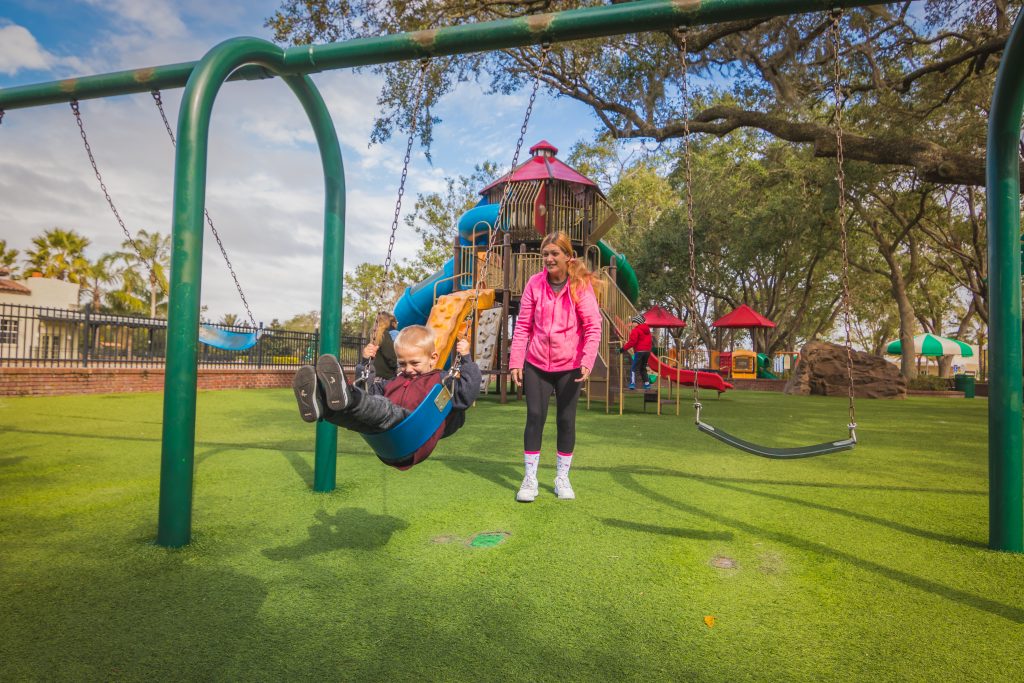Every day social innovators and social innovation organizations across the country are measurably impacting communities and individuals. This Practice to Policy blog series lifts up the voices of the more than 70 organizations that make up the America Forward Coalition and our broader social innovation network by highlighting the outcomes-based solutions to our country’s most pressing social problems and why these solutions must be reflected in our federal policies. Today we will hear from Patrick W. Lawler, CEO of America Forward Coalition member Youth Villages about the recently passed Family First Prevention Services Act and how it supports a shift to funding evidence-informed and research-based child welfare programs and interventions to address the needs of children and families.

Intensive in-home services through Youth Villages’ YVIntercept™ program in Florida made it possible for Cecil to safely reunite with his mother and siblings. His mother, Amanda, worked with a specialist to learn the evidence-based Collaborative Problem Solving model that helped Amanda improve her parenting style and interact with her children more effectively.
More than 25 years ago, Youth Villages and other leaders in children’s services began to believe that the best way to help a child who came to the attention of a child welfare system was to save, strengthen or restore his family. It sounds so simple now, but it was revolutionary then: children are raised best by their families.
Helping families with intensive in-home and community-based services bucked up against entrenched conventional wisdom. As the years passed and more providers began tracking their actual outcomes, people became open to services that could safely prevent a child from ever having to enter the child welfare system. Trauma research began to show the dramatic negative impact on a child that a wrenching separation from family can cause: children in foster care have higher rates of PTSD than combat veterans.
But, there was little or no funding for intensive work with families in state or federal budgets. Over the years, child advocates, leaders of nonprofit organizations, and child welfare officials came together to urge government officials at all levels to fund more home- and community-based services for families.
We asked the government to fund what works – programs that deliver outcomes and results; that are backed by research and evidence; and programs that focus on safety and that can prevent children from ever entering foster care, or make family reunification possible.
We asked for federal child welfare reform and were denied over and over, most recently in 2016. Then, suddenly, the bipartisan Family First Prevention Services Act became law on Feb. 9, 2018, thanks to these leaders: Senators Orrin Hatch (R-UT) and Ron Wyden (D-OR), and Congressmen Kevin Brady (R-TX), Sander Levin (D-MI) and Vern Buchanan (R-FL).
Family First will finally allow states to use Title IV-E foster care funding – for up to one year – to pay for certain evidence-informed and research-based services and programs, in an effort to help keep more children safely with their families and ensure that state custody is truly a last resort. These will include mental health and substance abuse services, as well as in-home parent “skill-based” programs like individual and family therapy.
This is a victory for children across the country and for advocates who have worked so hard to bring change to entrenched systems. Finally, the funding is catching up with best practices.
Family First is not a silver bullet that will fix all the woes of our country’s foster care systems. It’s not a perfect law, and it will cause some strain for providers and states as we all adjust to the new requirements. It will require us to find ways to test our programs, look at our outcomes and improve what we do.
We welcome these challenges. Family First gives innovative child welfare leaders a new path to reform that will stretch state dollars for prevention and bring new hope for struggling families.
There are approximately 435,000 children and youth in foster care today – but many would never have had to experience the trauma involved in out-of-home placements if effective, intensive help had been provided to their families. We hope Family First leads innovative states and jurisdictions to implement performance-based contracting and pay-for-success approaches that demand more effective, results-oriented programs and services.
Childhood is short, and children deserve to grow up safely with their parents or extended family whenever possible. We must work together to ensure that Family First is implemented on schedule and meets its potential to drive needed change – for the sake of keeping families safely together.
Patrick W. Lawler is CEO of Youth Villages, a national leader in children’s mental and behavioral health. Founded in 1986, the organization helps more than 25,000 children annually through programs that involve intensive work with the child and family, as well as a focus on measuring outcomes; keeping children in the community whenever safely possible; and providing accountability to families and funders. With locations in 14 states and 74 locations, Youth Villages’ continuum of programs includes intensive in-home services; residential treatment; foster care and adoption; YVLifeSet for transition-age youth; mentoring; and crisis services. The organization has been recognized by the Harvard Business School and U.S. News & World Report, and was identified by The White House as one of the nation’s most promising results-oriented nonprofit organizations. Learn more at www.youthvillages.org.
Leave a Reply
You must be logged in to post a comment.